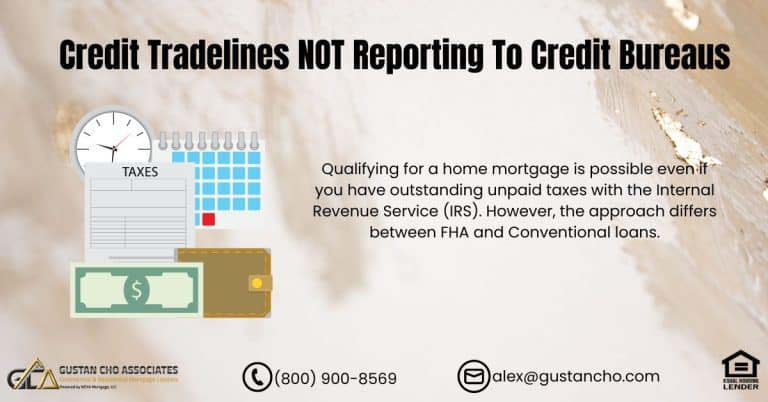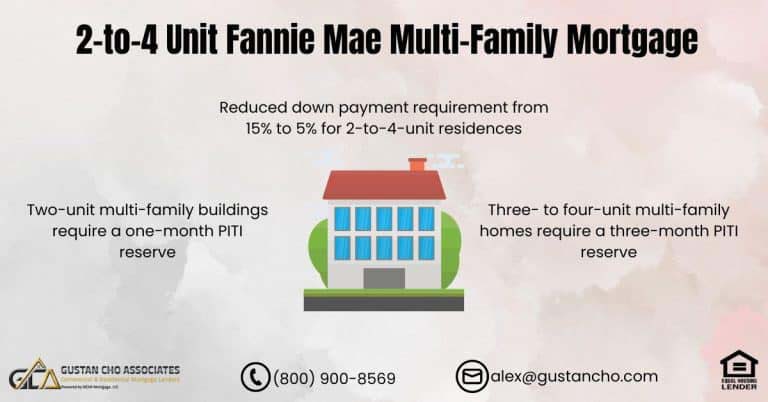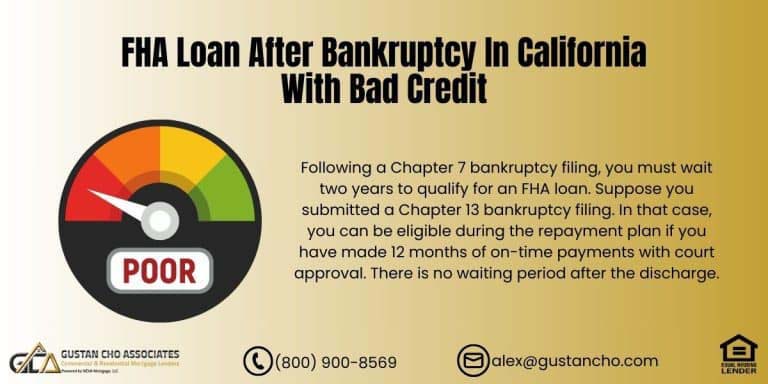Mortgage Approval Can Be Revoked: What Every Borrower Needs to Know in 2024
Getting your mortgage approval feels like crossing the finish line. But did you know that your approval isn’t guaranteed until closing? Yes, a mortgage approval can be revoked even after it’s initially granted. Whether you’re a first-time homebuyer or refinancing your dream home, it’s important to understand what can go wrong and how to avoid mistakes that could cost you your home loan.
This blog will explain everything you need about conditional loan approvals, why they get revoked, and how to protect your approval. We’ll also cover the latest mortgage guidelines and tips to help you successfully navigate the loan process in 2024.
What Does Conditional Mortgage Approval Mean?
When you receive a conditional mortgage approval, the lender has reviewed your application and determined that you meet the basic qualifications for a home loan. This includes:
- Your income is enough to cover the mortgage.
- Your credit history and credit score fall within acceptable ranges.
- Your assets show you have enough money for the down payment and closing costs.
However, the approval comes with conditions. The lender still needs to verify certain details and may require additional documentation before they issue a clear to close.
Some of the documents an underwriter may review include:
- Tax returns and W-2s.
- Recent bank statements.
- Pay stubs or other proof of income.
- Letters explaining past credit issues.
Mortgage Approval Can Be Revoked—Here’s Why
Your mortgage approval isn’t set in stone until closing day. Any significant changes to your financial, employment, or credit profile during the loan process can lead to your approval being revoked.
Here are the most common reasons:
1. Changes in Employment
If you lose your job or change employers during the loan process, your lender may no longer consider you eligible. Even switching from a W-2 salaried position to a 1099 contractor role could delay your loan because lenders prefer stable, predictable income.
Pro tip for 2024: If you’re planning a career change, wait until after your loan closes to avoid complications.
2. Increased Debt or New Credit Accounts
Acquiring a vehicle, applying for a new credit card, or reaching the limit on current credit cards can negatively impact your debt-to-income (DTI) ratio, an essential element for mortgage approval.
Lenders recheck your credit before closing, and significant changes could mean you no longer qualify.
What to do: Wait to make any major purchases or financial commitments until after closing.
3. Bank Statement Issues
Lenders scrutinize your bank statements for signs of financial instability, such as overdrafts or large, unexplained deposits. Both can raise red flags and jeopardize your approval.
Stay safe: Maintain a steady pattern of account activity and make sure you have sufficient funds to handle closing expenses.
4. Credit Score Drops
If your credit score dips during the loan process—due to missed payments, increased credit usage, or retracted disputes—your approval could be revoked.
For 2024: New scoring models may provide a more inclusive picture of creditworthiness, but maintaining good credit habits is still essential.
5. Undisclosed Public Records
Public records like bankruptcies, foreclosures, or tax liens may not appear in your credit report initially, but lenders conduct third-party national public records searches. If any undisclosed records are found, your loan approval can be revoked.
Start Your Process Towards Buying A Home
Apply Online And Get recommendations From Loan Experts
Updated Mortgage Guidelines for 2024
The mortgage landscape is constantly evolving. Here’s what borrowers need to know for 2024:
- New Credit Scoring Models: By late 2025, Fannie Mae and Freddie Mac will fully adopt new scoring models like FICO 10T and VantageScore 4.0. These models consider trended data, giving lenders a clearer picture of your financial habits. Borrowers with thin credit files or alternative credit histories may see improved approval chances.
- Tighter Overdraft Rules: Lenders are paying closer attention to overdraft activity. Even one or two overdrafts can be seen as a sign of financial instability.
- Employment Verification Changes: Lenders now rely more on automated employment verification systems, which make it faster to verify job status. However, this also means they’re likely to catch changes in employment sooner.
How to Avoid Losing Your Mortgage Approval
Borrowers often make mistakes during the loan process that put their approval at risk. To protect your loan approval, follow these simple rules:
Don’t Change Jobs or Quit
Lenders require a steady income. If you lose or change your job, inform your lender immediately. If possible, delay job changes until after closing.
Avoid New Debt
Hold off on big-ticket purchases like cars, furniture, or vacations. New debt can increase your DTI ratio, making it harder to qualify.
Keep Your Credit Stable
- Pay all bills on time.
- Avoid disputing credit items unless directed by your lender.
- Don’t close old accounts or open new ones.
Save Enough for Closing Costs
Ensure you have enough funds for your down payment and closing costs. Avoid overdrafts or unusual activity in your bank account.
Be Honest About Public Records
Disclose all financial issues upfront, including bankruptcies, foreclosures, or judgments. Hidden issues will be uncovered during the underwriting process.
Why Lenders Revoke Mortgage Approvals
Lenders take on significant risk when approving a mortgage. If your financial or personal situation changes, they may no longer see you as a reliable borrower.
Before issuing a clear to close, lenders recheck the following:
- Credit Report and Score – To ensure no new debt or late payments.
- Employment Status – To confirm you’re still employed.
- Bank Statements – To verify funds are available for closing.
If any red flags appear, they may revoke your approval.
What Happens If Mortgage Approval Is Revoked?
If your approval is revoked, your loan process will halt. You may need to:
- Provide additional documentation.
- Address the issue causing the revocation.
- Restart the loan application process.
In some cases, you may no longer qualify for the loan, and the deal could fall through.
Qualify For Mortgage With Confidence
Apply Online And Get recommendations From Loan Experts
Qualify for a Mortgage with Confidence
Gustan Cho Associates specializes in helping borrowers navigate the mortgage process, even in challenging situations. As a direct lender with no overlays, we work with borrowers who may have been denied by other lenders.
Why choose us?
- Flexible guidelines for FHA, VA, USDA, and conventional loans.
- Expertise in non-QM loans for unique borrower needs.
- Fast approvals and clear communication every step of the way.
Final Thoughts
Getting a mortgage is a big step, but it comes with responsibilities. While receiving conditional approval is exciting, remember that your mortgage approval can be revoked if your financial situation changes.
By staying informed and following best practices, you can avoid costly mistakes and close on your dream home with confidence.
Ready to take the next step? Contact Gustan Cho Associates at 800-900-8569 or email us at gcho@gustancho.com. We’re here to help 7 days a week!
Frequently Asked Questions About Mortgage Approval Can Be Revoked:
Q: What Does “Mortgage Approval Can be Revoked” Mean?
A: It means your lender can cancel your mortgage approval if your financial, credit, or personal situation changes significantly before the loan closes.
Q: Why Can a Mortgage Approval be Revoked After Getting Conditional Approval?
A: Your approval is based on specific conditions, such as stable income, good credit, and enough savings. If anything changes—like losing your job or increasing your debt—your lender might no longer consider you eligible.
Q: Can My Mortgage Approval be Revoked if I Lose My Job?
A: Yes, losing your job during the loan process is one of the most common reasons a mortgage approval can be revoked. Lenders verify your employment right before closing.
Q: Will Opening a New Credit Card Affect My Mortgage Approval?
A: Yes, opening new credit accounts or making large purchases can increase your debt-to-income ratio (DTI), which could lead to your mortgage approval being revoked.
Q: Can Overdrafts in My Bank Account Cause My Mortgage Approval to be Revoked?
A: Yes, lenders review your bank statements carefully. Overdrafts or insufficient funds could be signs of financial instability, putting your approval at risk.
Q: What Happens if My Credit Score Drops During the Loan Process?
A: Your lender may reconsider your approval if your credit score drops due to missed payments or increased credit usage. A lower score can also affect your interest rate or loan terms.
Q: Are Public Records Like Bankruptcies or Tax Liens a Problem After Getting Approval?
A: Yes, lenders conduct a final public records search before closing. If undisclosed records, such as bankruptcies or liens, are found, your mortgage approval can be revoked.
Q: How Can I Avoid My Mortgage Approval Being Revoked?
A: Don’t change jobs, avoid new debt, keep your credit stable, save enough for closing costs, and disclose all public records upfront to protect your approval.
Q: Can My Approval be Revoked if I Switch From a W-2 Job to Self-Employment?
A: Yes, switching to self-employment during the loan process could delay or cancel your approval. Lenders prefer consistent, verifiable income from a steady job.
Q: What Should I do if My Mortgage Approval is Revoked?
A: If your approval is revoked, talk to your lender immediately. They may ask for updated documents or help you address the issue. In some cases, you might need to reapply.
This blog about “Mortgage Approval Can Be Revoked During Mortgage Process” was updated on December 5th, 2024.
Take First Step Toward Making Your Dream A Reality
Apply Online And Get recommendations From Loan Experts










